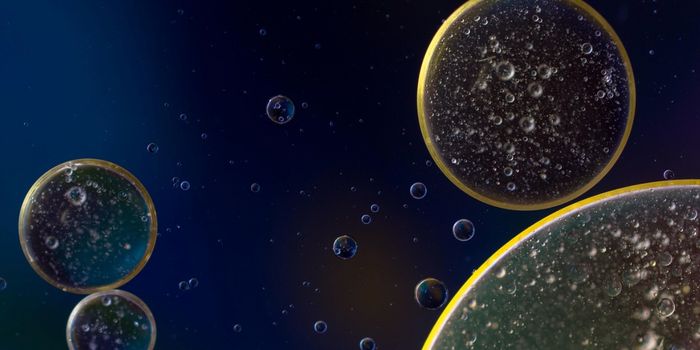Adding Evidence to the RNA World Hypothesis
Did life originate with RNA? Scientists are still trying to learn more about how life orignated on our planet, and how molecules in the 'primordial soup' gave rise to the first cells. One question is whether genomic material like DNA came before what we now think of as an intermediate molecule like RNA. In the cells we know, RNA transmits a 'recipe' for a protein from the genome to the cellular complex that translates it, the ribosome. Enzymes known as RNA polymerases are used to transcribe a DNA sequence into an RNA sequence.
Reporting in Science, researchers have added support to the RNA world hypothesis, which suggests that the first life on our planet used self-replicating RNA molecules. Such molecules would, in theory, not only carry genetic information now stored in DNA, but would also act like proteins to trigger the biochemical reactions that cells rely on to live. DNA and proteins themselves would, therefore, come along later as cells became more complex.
In this study, the scientists isolated a RNA polymerase ribozyme that can generate new RNA molecules from an RNA template.
"This RNA polymerase has many of the features of modern protein polymerases; it was evolved to recognize an RNA promoter, and subsequently, to copy RNA processively. What our finding implies is that similar RNA enzymes early in the evolution of life could also have manifested such sophisticated biological features," explained study leader and Simon Fraser University molecular biology and biochemistry professor Peter Unrau.
Proteins called enzymes now catalyze reactions, but ribosomes, which are made from RNA, make proteins. This could indicate that RNA came first; the ribosome may have been created during the RNA world but never abandoned during evolution because it worked.
RNA can perform many functions, including making DNA, and sometimes it functions more like a protein since it can bind to other molecules and affect reactions. This work also showed that it can clamp.
The research team is going to engineer a system that can evolve in the lab on its own; the aim is to make a ribozyme that acts like an RNA polymerase, and can self-sustain and self-replicate. If that's possible, it may provide insights into the earliest RNA-based organisms.
"If we are able to create a living and evolving RNA-based system in the laboratory we'd have made something quite remarkable, something that has probably has never existed since the dawn of life on this planet," said Unrau.
"By understanding the fundamental complexity of life, in the laboratory, we can start to estimate the chances of life on other planets and determine the likelihood that planets such as Mars either had or still have the potential to harbor life."
Sources: AAAS/Eurekalert! via Simon Fraser University, Science









